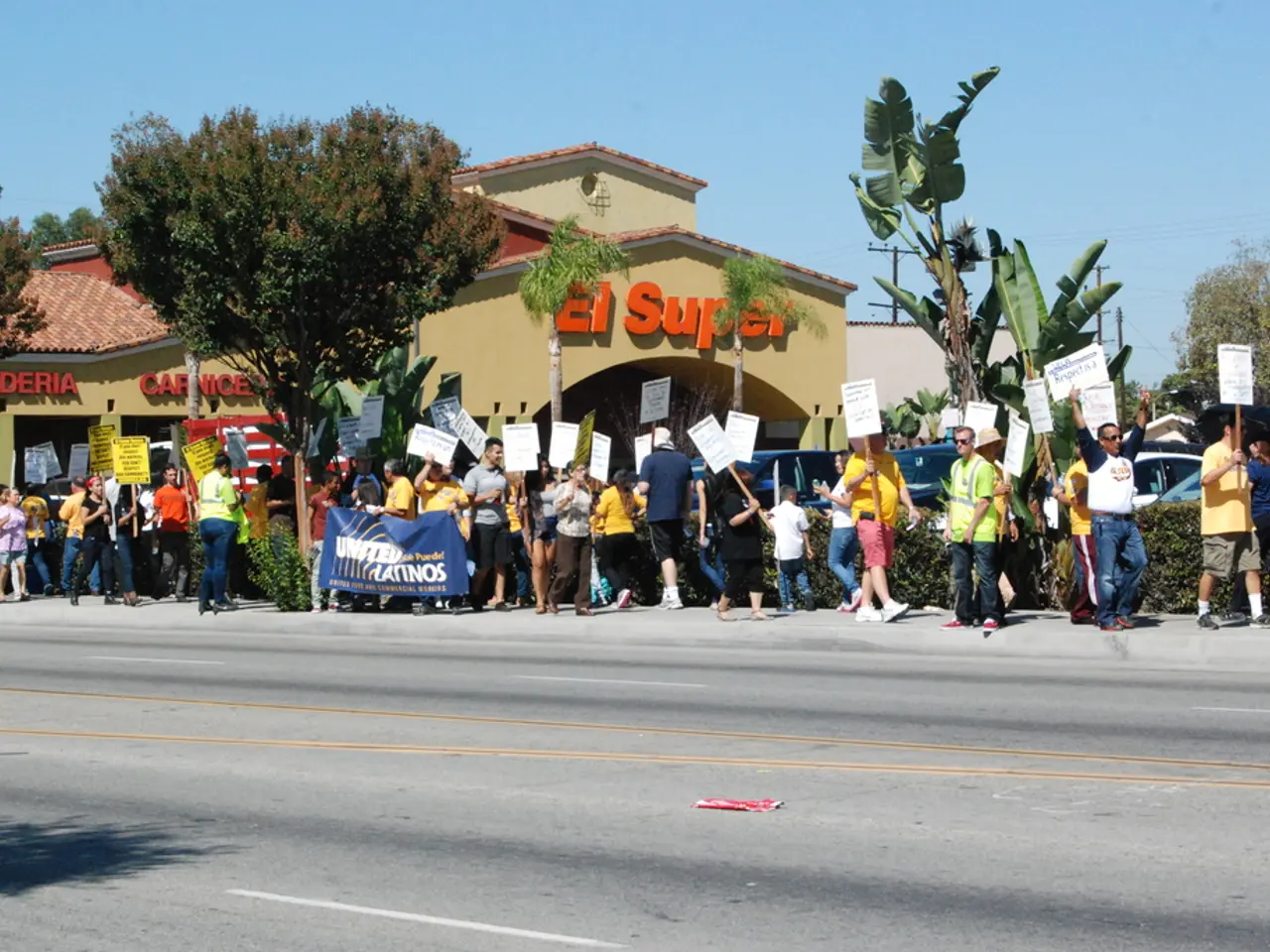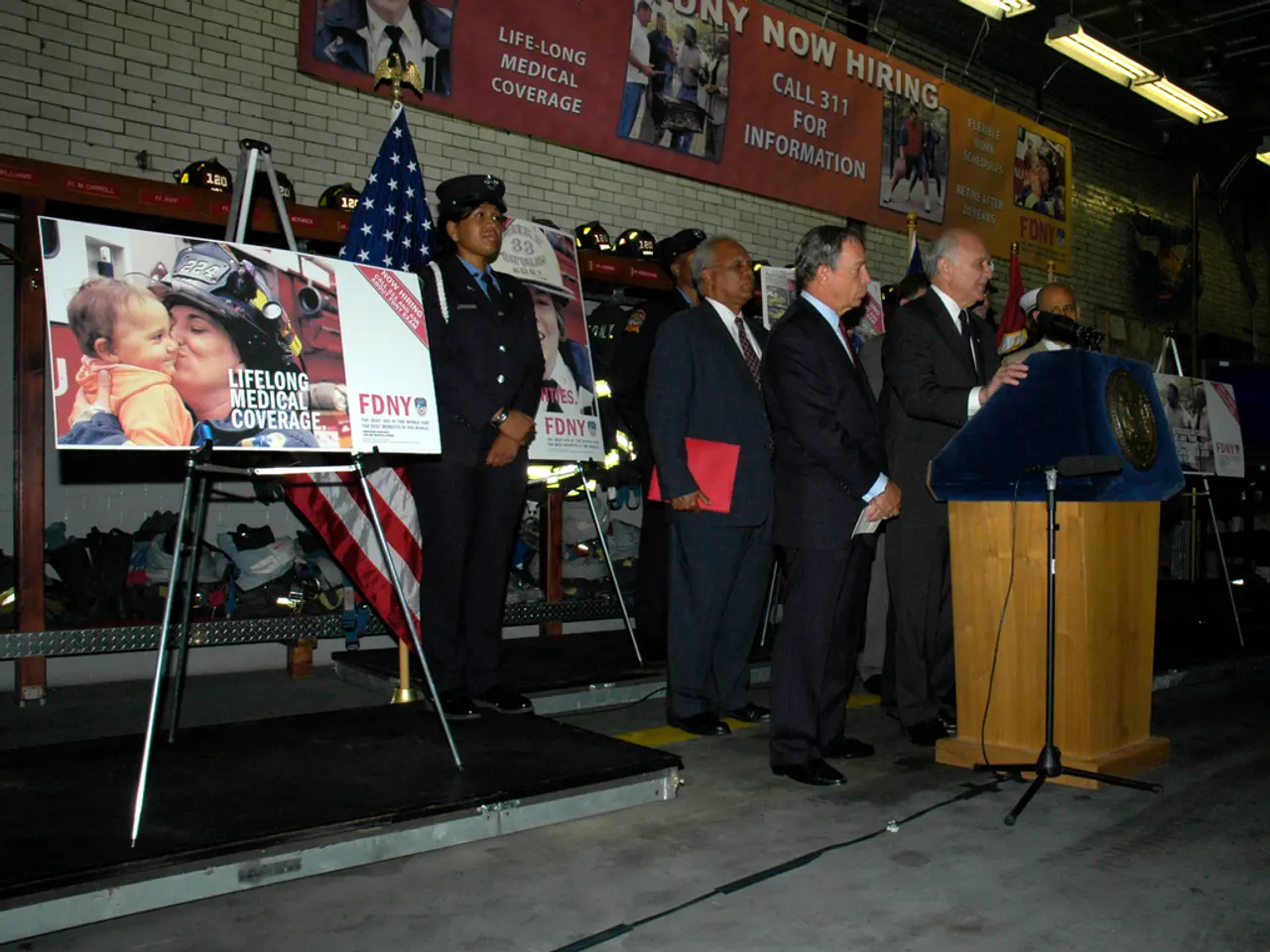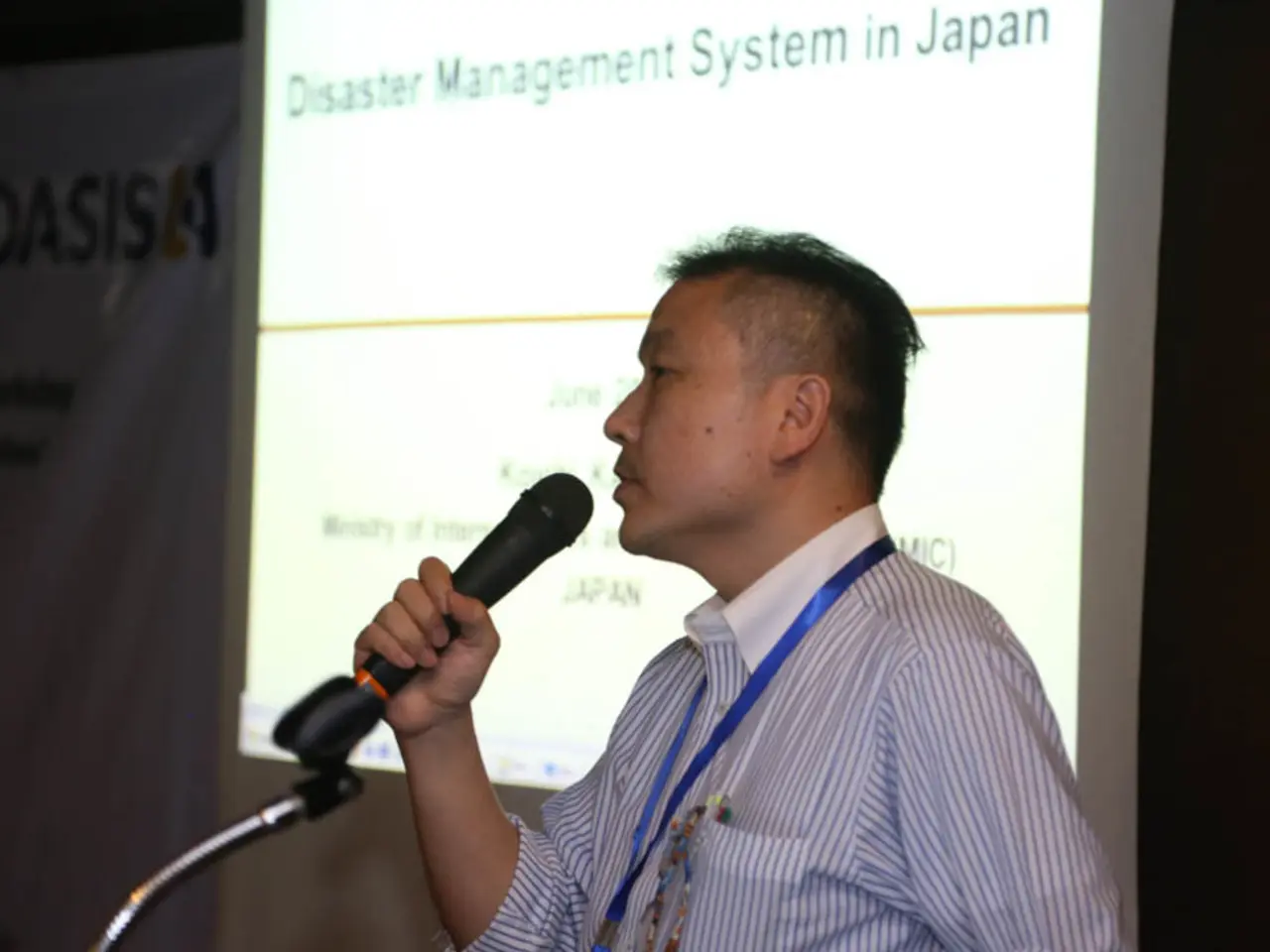Israeli Prime Minister Netanyahu intends to annex the entire region of Gaza
In the ongoing conflict between Israel and Palestine, a proposed full takeover of the Gaza Strip by Israel has sparked international concern due to its potential humanitarian, political, and security implications.
Israeli Prime Minister Benjamin Netanyahu has reportedly been pushing for this full occupation, a move that could exacerbate the already dire conditions for Gaza's residents. The UN has warned of a risk of famine in the region, with a majority of aid shipments being looted before reaching their destination.
For Palestinian residents, the proposed takeover risks catastrophic destruction and displacement. Already, 78 percent of structures in Gaza are damaged or destroyed, and hospitals are overwhelmed beyond capacity. Around 14,800 patients require urgent medical evacuations.
Aid organizations face significant challenges in providing humanitarian assistance. UN humanitarian deliveries are severely restricted by access issues and security concerns, with many aid convoys delayed, partially completed, or looted before reaching their destinations. This inability to provide consistent aid would almost certainly worsen in the event of a full takeover.
Regarding ceasefire negotiations with Hamas, many international stakeholders see such a takeover as breaching international law and believe it would critically undermine prospects for an immediate ceasefire, the release of hostages, and the restoration of humanitarian access. Many members of the UN Security Council are expected to condemn the plan, warning that expanded military action threatens the safety of hostages and the viability of a two-state solution, which remains central to a sustainable political resolution.
In Lebanon, there is concern about a new war with Israel, as the Israeli military continues to attack Hezbollah almost daily. A cabinet meeting is scheduled today to discuss the state's control of all weapons and the disarmament of Hezbollah.
Meanwhile, US Special Envoy Steve Witkoff is aiming for a comprehensive deal to end the conflict and return all remaining hostages at once, rather than negotiating for a ceasefire and phased hostage release. Currently, there are still 50 hostages in the hands of Hamas, of whom 20 are believed to be alive.
Israeli Chief of Staff Eyal Zamir has had heated discussions with ultra-right ministers who demand the takeover of the entire Gaza Strip, expulsion of the Palestinian population, and the establishment of Jewish settlements. However, former military spokesperson Peter Lerner has criticized the decision to allow the full occupation of Gaza, stating it is "political survival, disguised as national security." Lerner hopes that Zamir "has the courage to resist this absurd plan, which is not directed against Hamas. It is directed against Israel."
Netanyahu is facing a corruption trial and is dependent on his right-wing coalition partners for his political survival. The removal of all Hamas tunnels and bunkers in a full takeover could take years, according to military concerns, raising questions about the political motivations behind this proposed action.
These concerns have been highlighted in international forums such as the UN Security Council emergency briefing held on 9 August 2025. As the situation continues to evolve, the international community will closely monitor the developments in the region and the potential impacts on the lives of thousands of Palestinians and Israelis.
- The proposed full takeover of Gaza Strip by Israel is causing international concern as it raises political, humanitarian, and security implications, and could potentially exacerbate the already dire conditions for Gaza's residents.
- Many international stakeholders believe that the proposed takeover of the Gaza Strip breaches international law and would critically undermine prospects for an immediate ceasefire, the release of hostages, and the restoration of humanitarian access.






